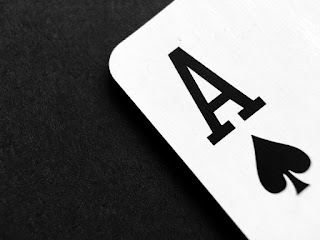Gambling, whether at a casino or in a friendly poker game, isn't just about luck. Psychology plays a significant role in determining success in games of chance and skill. Understanding and applying psychological principles can help you become a better gambler. In this article, we'll explore ten psychological principles that can enhance your gambling skills.
Bankroll Management
Effective bankroll management is a fundamental psychological principle in gambling. It involves setting limits on how much you're willing to risk and sticking to those limits. The key is to avoid chasing losses and making emotionally-driven bets. Establish a budget before you start gambling and have the discipline to walk away when you've reached your limit.
Probability and Risk Assessment
Successful gamblers understand the concept of probability and risk. They calculate the odds of winning and losing in each game and use this information to make informed decisions. Knowing when to take calculated risks and when to play it safe is crucial for long-term success.
Emotional Control
Emotions can be your greatest ally or your worst enemy when gambling. Anxiety, frustration, and overconfidence can lead to poor decisions and significant losses. Learning to control your emotions and stay calm under pressure is a vital psychological skill for any gambler.
The Gambler's Fallacy
The Gambler's Fallacy is a cognitive bias where individuals believe that past events influence future outcomes, even in random events like coin flips or roulette spins. Recognizing this fallacy can help you avoid making irrational bets based on a belief that a streak of losses or wins will continue indefinitely.
The Hot Hand Fallacy
Conversely, the Hot Hand Fallacy is the belief that a person who has experienced a streak of success is more likely to continue winning. While some streaks may occur due to skill or favorable odds, it's essential to remember that each game is independent of past outcomes. Don't be misled by the idea that you're "on fire" and invincible.
Bluffing and Deception
In games like poker, bluffing and reading your opponents are essential skills. Understanding body language, facial expressions, and behavioral cues can give you an edge in determining when someone is bluffing or holding a strong hand. Conversely, mastering the art of deception can help you bluff successfully without giving away any tells.
Patience and Timing
Patience is a virtue in gambling. Waiting for the right moment to make your move can be the difference between winning and losing. Knowing when to fold, raise, or call requires a keen sense of timing and the ability to stay patient, even in the face of adversity.
Information Processing
Processing information efficiently is crucial for making quick decisions in fast-paced gambling environments. Skilled gamblers can analyze multiple variables, such as card combinations, odds, and opponents' behavior, in a matter of seconds. Enhancing your information processing skills can give you a significant advantage.
Learning and Adaptation
The best gamblers are continual learners. They analyze their past games, learn from their mistakes, and adapt their strategies accordingly. Being open to new approaches and strategies, as well as being willing to evolve, is a psychological principle that separates successful gamblers from the rest.
Self-Discipline and Quitting
Knowing when to quit is just as crucial as knowing when to bet. Many gamblers fall into the trap of chasing losses or trying to win back what they've lost. Self-discipline is about setting clear limits and having the strength to walk away when you've reached them, even if it means accepting a loss.
Conclusion
Becoming a better gambler involves more than just luck; it's about mastering the psychological principles that influence decision-making and gameplay. By practicing bankroll management, understanding probability, controlling emotions, recognizing cognitive biases, and honing skills like bluffing and timing, you can enhance your gambling abilities and increase your chances of success. Remember, gambling should always be approached with responsibility and self-awareness to ensure it remains an enjoyable pastime rather than a financial burden.
Photo: Pixabay (free)
